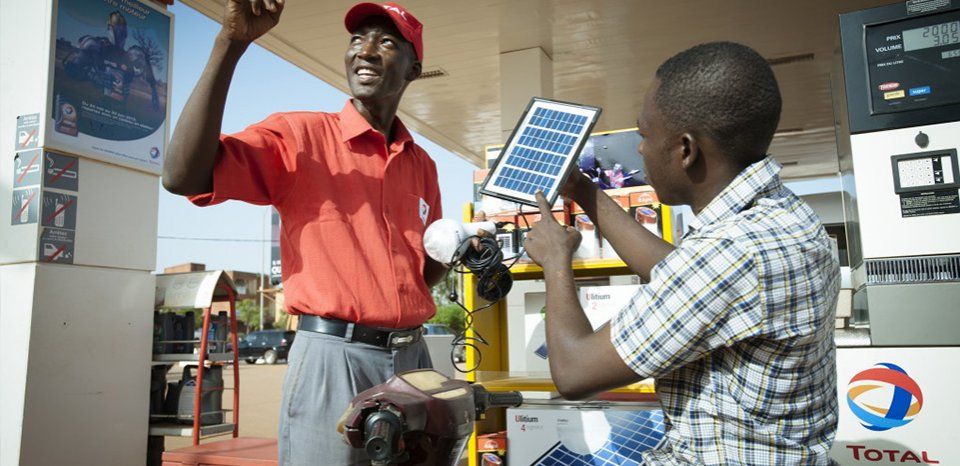Many households in Africa, Asia and Latin America lack reliable access to power, making it tough for them to light their homes.
Total offers safe, affordable solar solutions. Even people living in very isolated villages can get hold of their solar lamps and kits, thanks to dedicated retail networks.
These lamps are available both at Total service stations and via the Group’s networks. Customers can also take advantage of the new “Pay as you go” solution to pay for their kits in instalments, making Awango by Total accessible to as many households as possible’ [read more]
First coal-free day observed in UK since Industrial Revolution
According to the national grid, The UK went a full day without using coal to generate electricity for the first time since the Industrial Revolution.
This happened on Friday, 22nd of April, 2017. The energy provider said Friday’s lack of coal usage was a “watershed” moment.
The government plans to phase out Britain’s last plants by 2025 in order to cut carbon emissions.
Friday is thought to be the first time the nation has not used coal to generate electricity since the world’s first centralised public coal-fired generator opened in 1882, at Holborn Viaduct in London’ [read more]
California Wants to Turn Its Notorious Traffic into Renewable Energy via ‘Piezoelectricity’
According to a report from San Francisco Chronicle, state officials will be funding an initiative called ‘Piezoelectricity’ to generate renewable electrical power from the road vibrations of California traffic.
Piezoelectricity is the ability of certain solid materials (such as crystals, certain ceramics, and biological matter such as bone, DNA and various proteins) to generate an AC (alternating current) voltage when subjected to mechanical stress or vibration.
“There’s a lot of traffic in California and a lot of vibration that just goes into the atmosphere as heat,” Mike Gravely, a senior electrical engineer and head of the research division at the California Energy Commission, pointed out. “We can capture that. The technology has been successfully demonstrated.”
Within two to three years, the state should know whether it’s a good idea to pursue piezoelectricity long term’ [read more]
Stakeholders Endorse National Plan for Disaster Risk Reduction
Ahead of the global talks in Cancun, Mexico next month (May), stakeholders have approved three documents that will assist Nigeria to fulfil requirements for the 15-year Sendai Framework for Disaster Risk Reduction (DRR).
The framework provides the way forward to prevent and reduce disaster risk in order to achieve resilient and sustainable development. Under the leadership of the National Emergency Management Agency (NEMA) and embracing all actors at all levels, the Sendai framework offers a solution to saving lives, livelihoods and assets as well as reducing the fiscal burden on government’ [read more]
‘Water Borne Diseases Kill 1000 Children Daily’
The United Nations Children Fund (UNICEF), says over one thousand children die globally from diarrhoeal diseases from unsafe drinking water and poor sanitation.
UNICEF WASH Specialist, Rivers State field office, Port Harcourt, Martha Hokonya who disclosed this in Port Harcourt also said that globally, 40 billion man hours is spent every year in search of water.
She said about 1.8 billion people use sources of drinking water contaminated with faeces, putting them at risk of contracting cholera, dysentery, typhoid and polio’ [read more]

